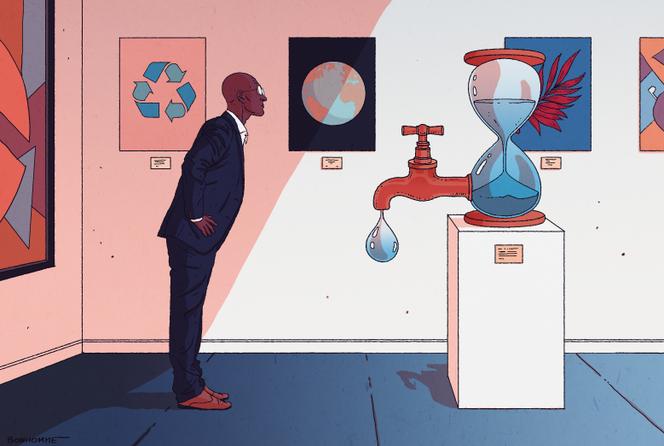


Last spring, the Maison des Arts in Malakoff, southwest of Paris, voluntarily deprived itself of all utilities: no water, no gas, no electricity. But this was no one-off exhibition, it was a radical experiment in de-growth that took place over five months. "We'd already done a lot of eco-actions by collecting rainwater, creating an orchard and changing the lighting, but that didn't seem to be enough," explained director Aude Cartier. "We need to transform environmental anxiety into mobilizing action, to transform the world rather than watching it sink, and our institutions have a role to play."
With solar lamps and water buckets in the toilets, Cartier and her team have reinvented daily life at the gallery. There's now a bread oven in the garden; plus miso, kombucha and kimchi fermentations; acrobatic mushroom farms; and endless debates about the world of tomorrow.
Not all French museums and art centers are going this far. But environmental commitments have become a priority since the Covid-19 pandemic. The 2022 climate disasters accelerated the movement. All major museums now employ a greening expert. The aim is to reduce the "9,000 metric tons of CO2 produced each year [by such an establishment], or the footprint of 800 French people," said the collective Les Augures, which supports the visual arts sector in its energy transition.
In Malakoff, they set out to collect as much data as possible. From the mode of transport used by visitors to the psychological impact of such a change on the team, everything was listed and analyzed "in order to think about the tools we can keep for the future, and share them with others," explained Cartier.
This is the main pitfall: "Museums often don't know where to start, as it's all outside their remit, and involves a wide variety of issues," said Fanny Legros, who three years ago set up Karbone Prod, another firm specializing in this type of support.
The 100% eco-friendly museum of the future will need to know how to calculate the fuel consumption of a truck; be an expert in insulation; sustainably source the fish for its restaurant; master the 2019 tertiary decree (which calls for the consumption of public buildings to be reduced by 40% by 2030, 50% by 2040 and 60% by 2050); encourage its visitors to come by bike; trace the life cycle of the fabric of its benches; and imagine a future for the carpet it rips out.
"But we have no choice: In a few years, France will have the climate of Andalusia," claimed Sandra Patron, who has developed a volunteer action plan at the Centre d'Arts Plastiques Contemporains in Bordeaux, of which she has been director since 2019. "Our nave? It may soon be too hot to exhibit there. But we reject the idea of a future without a future. These questions are as fascinating as they are scary. And the more we look ahead, the more intelligent our responses will be." Bordeaux will open a recycling center in its submarine base this autumn, which will collect and redistribute waste from the city's cultural institutions.
You have 66.18% of this article left to read. The rest is for subscribers only.
